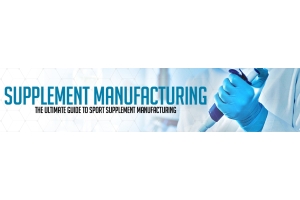Introduction
In the ever-expanding world of health and wellness, dietary supplements have become a staple for many individuals seeking to enhance their overall well-being. Behind the scenes, the formulation process plays a pivotal role in ensuring the effectiveness of these supplements. One key aspect that often goes unnoticed is the use of tableting ingredients. In this blog post, we'll explore why incorporating high-quality tableting ingredients is crucial for creating supplements that deliver optimal results.
Enhanced Bioavailability:
Tableting ingredients play a vital role in improving the bioavailability of the active components in a supplement. Bioavailability refers to the extent and rate at which a substance is absorbed into the bloodstream. By carefully selecting and combining Tableting ingredients, manufacturers can enhance the absorption of essential nutrients, ensuring that the body can make the most of the supplement.
Improved Stability and Shelf Life:
Formulating supplements involves combining various ingredients, each with its own set of characteristics. Tableting ingredients act as stabilizers, preventing the degradation of active components over time. This not only extends the shelf life of the supplement but also ensures that consumers receive a product with consistent potency throughout its recommended usage period.
Facilitates Controlled Release:
Certain supplements are designed for slow and controlled release within the body to optimize nutrient absorption. Tableting ingredients such as binders and disintegrants help regulate the dissolution rate of the supplement, ensuring that nutrients are released in a manner that maximizes their effectiveness. This controlled release can contribute to sustained benefits and minimize the risk of adverse reactions.
Aids in Manufacturing Efficiency:
Tableting ingredients serve practical purposes during the manufacturing process. Binders help hold the supplement together, disintegrants assist in the breakdown of the tablet in the digestive system, and lubricants ensure smooth processing. The proper use of these ingredients not only enhances the final product but also streamlines the manufacturing process, making it more efficient and cost-effective.
Minimizes Side Effects:
Carefully selected tableting ingredients can contribute to the overall safety of a supplement. By using appropriate excipients, manufacturers can minimize the risk of potential side effects such as gastrointestinal discomfort or allergic reactions. This attention to detail ensures that the supplement is well-tolerated by a broad range of individuals.
Microcrystalline Cellulose:
Microcrystalline cellulose has low moisture content, which makes it less susceptible to degradation or microbial growth. This characteristic contributes to the stability and shelf life of the tablets, preserving their quality over time.
Enhanced Flow Properties:
MCC has excellent flow properties, which means it flows smoothly and uniformly during the tableting process. This facilitates the efficient and consistent filling of tablet dies, leading to faster production rates and reduced risk of tablet defects.
Magnesium stearate:
Magnesium stearate acts as a lubricant, reducing friction between particles during the tableting process. This enhances the flow properties of the powder blend, ensuring uniform distribution within the die cavity and promoting consistent tablet weight and content uniformity.
During compression, tablet formulations may adhere to the surfaces of punches and dies, leading to sticking issues. Magnesium stearate forms a thin, lubricating layer on the surface of the tablet, preventing adhesion and facilitating the ejection of tablets from the dies. This helps minimize tablet picking, capping, and sticking problems, thereby improving production efficiency, and reducing downtime.
Dicalcium phosphate:
Di Calcium Phosphate acts as both a binder and a diluent in tablet formulations. As a binder, it helps hold the tablet ingredients together, ensuring proper cohesion during compression. Additionally, it serves as a diluent, providing bulk to the tablet formulation and aiding in the uniform distribution of active ingredients.
Improved Tablet Disintegration:
Dicalcium phosphate enhances tablet disintegration, allowing the tablet to break down quickly and release its contents for efficient absorption in the body. This rapid disintegration is particularly important for ensuring the bioavailability of active ingredients, especially in time-sensitive formulations or those requiring fast onset of action.
Conclusion:
In the realm of dietary supplements, the significance of tableting ingredients should not be underestimated. These seemingly minor components play a crucial role in optimizing bioavailability, stability, and manufacturing efficiency. By understanding and appreciating the role of tableting ingredients, both manufacturers and consumers can be confident that they are investing in supplements that are not only effective but also safe and reliable.






